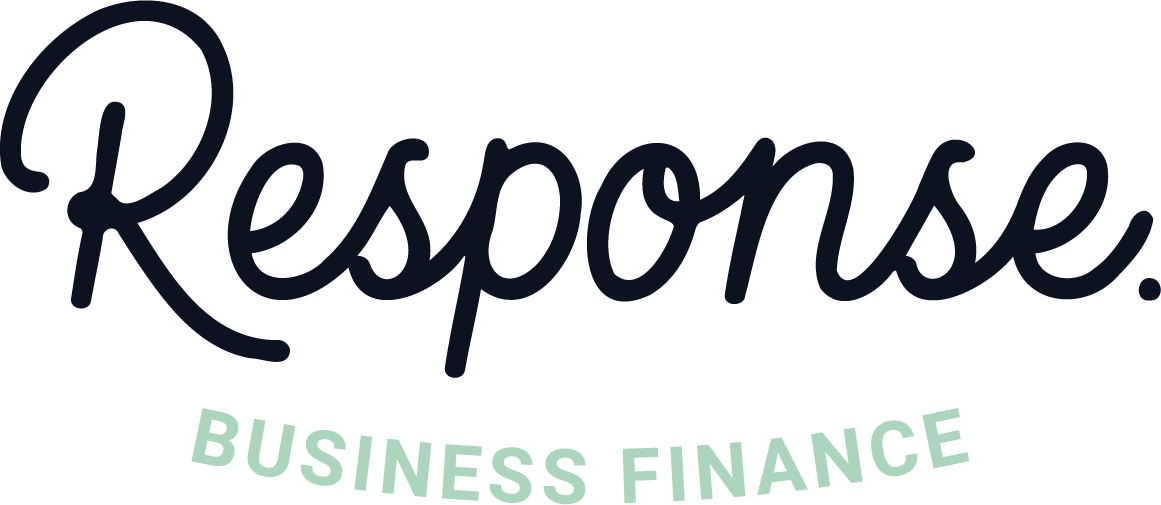
Blog Article by Response Business Finance
Invoice Factoring vs Invoice Discounting: What’s the Difference?
Cash flow problems keeping you up at night? You’re not alone. 20% of UK businesses fail in their first year, and 60% don’t make it past three years. The biggest culprit? Cash flow issues cause 82% of business failures. When customers take 30, 60, or even 90 days to pay their invoices, it creates a dangerous gap between what you’ve earned and what you can actually spend.
That’s where invoice finance comes in. But here’s where it gets confusing — there are two main types: invoice factoring and invoice discounting. They sound similar, but they work very differently. Understanding the difference could save you thousands in fees and help you pick the right funding solution for your business.
What Is Invoice Factoring?
Invoice factoring is the simpler of the two options. Here’s how it works:
You sell your unpaid invoices to a factoring company. They give you around 80-90% of the invoice value upfront — usually within 24 hours. The factoring company then takes over collecting payment from your customers. When your customer pays, the factoring company releases the remaining balance, minus their fee.
Think of it as outsourcing your entire credit control function. The factoring company handles everything from sending payment reminders to chasing late payers. Your customers know they’re dealing with the factoring company, not you.
Key features of invoice factoring:
What Is Invoice Discounting?
Invoice discounting is more discreet. You still get an advance against your unpaid invoices — but your customers don’t know about it. You keep control of your sales ledger and continue collecting payments as normal.
The finance company provides you with a credit facility based on your outstanding invoices. You can draw down funds as needed, paying interest only on what you use. When customers pay, you use that money to repay the facility.
Key features of invoice discounting:
The Key Differences at a Glance
| Feature | Invoice Factoring | Invoice Discounting |
|---|---|---|
| Customer knows? | Yes | No |
| Who collects payments? | Factoring company | You |
| Advance amount | 80-90% | 80-95% |
| Cost | Higher (1-3% of turnover) | Lower (0.3-1.5% per month) |
| Credit control | Outsourced | You retain control |
| Flexibility | Less flexible | More flexible |
| Setup complexity | Simple | More complex |
When Does Invoice Factoring Make Sense?
Invoice factoring works best if you:
Want to outsource credit control completely
If chasing payments takes up too much of your time, factoring frees you up to focus on growing your business. The factoring company handles all the paperwork, phone calls, and follow-ups.
Don’t mind customers knowing
Some businesses worry about how factoring looks to customers. But in reality, most customers are used to dealing with finance companies. It’s becoming increasingly common, especially in sectors like recruitment, logistics, and manufacturing.
Need cash fast with minimal setup
Factoring is usually quicker to arrange than discounting. Less paperwork, fewer credit checks, and you can often get funding within days.
Have inconsistent credit control
If your current credit control is patchy or you don’t have dedicated staff for it, factoring can actually improve your collection rates. Professional factoring companies often get paid faster than you would on your own.
If this sounds like your situation, get in touch with us to discuss how invoice factoring could work for your business.
When Does Invoice Discounting Make Sense?
Invoice discounting is better if you:
Value customer relationships
If you’ve spent years building strong relationships with customers, you might not want a third party getting involved. Discounting keeps everything confidential.
Have good credit control systems
Discounting works best when you already have efficient processes for chasing payments. You need to be confident in your ability to collect what you’re owed.
Want lower costs
Because you’re doing the work of collecting payments, discounting is typically cheaper than factoring. The savings can be significant if you have high invoice volumes.
Need flexibility
With discounting, you can draw down funds as needed rather than taking an advance on every invoice. This gives you more control over costs.
Have a strong finance function
Discounting requires more administration on your side. You need someone who can manage the facility, reconcile payments, and keep the finance company updated.
Before making this choice, it’s worth understanding the risks and rewards of using invoice finance to make sure you’re comfortable with how these facilities work.
Cost Comparison: What Will You Actually Pay?
The headline rates only tell part of the story. Here’s what you need to know about the real costs:
Invoice Factoring Costs:
Invoice Discounting Costs:
Example:
A business with £500,000 annual turnover using 80% of their facility:
The exact cost depends on your sector, credit quality, and invoice volumes. Fill out our online application to get a tailored quote for your business.
Which Customers Pay Faster?
Here’s something most people don’t consider: customer payment behaviour can change depending on which option you choose.
With factoring:
Professional debt collection often results in faster payments. Factoring companies have systems, processes, and legal teams that individual businesses can’t match. Many of our clients see their average payment days improve by 10-15 days.
With discounting:
Payment times usually stay the same because nothing changes from the customer’s perspective. However, some businesses find they chase payments more aggressively because they’re paying interest on the facility.
Making Your Decision: 5 Key Questions
Before choosing between factoring and discounting, ask yourself:
- 1
How important is confidentiality?
If customer relationships are critical, lean towards discounting. - 2
How good is your credit control?
If it’s patchy or time-consuming, factoring might actually improve your cash flow. - 3
What’s your invoice volume?
High-volume businesses often benefit more from discounting’s lower costs. - 4
How quickly do you need funding?
Factoring is usually faster to set up. - 5
What’s your risk tolerance?
With factoring, the finance company often takes on the bad debt risk. With discounting, it stays with you.
Choosing the Right Invoice Finance Partner
Getting the structure right is only half the battle. The finance company you choose makes a huge difference to your experience and costs.
Look for a provider who:
When evaluating providers, consider how to choose the right invoice finance company to ensure you’re making the best decision for your long-term success.
Beyond the Basics: Hybrid Options
Some finance companies offer hybrid products that combine elements of both factoring and discounting:
Confidential factoring:
The finance company manages collections but uses your letterhead and contact details. Customers might not realise a third party is involved.
Selective discounting:
You choose which invoices to include in the facility rather than discounting your entire ledger.
Non-recourse discounting:
The finance company takes on the bad debt risk, similar to factoring, but collections remain confidential.
These options can bridge the gap if neither pure factoring nor discounting feels quite right.
Getting Started
Invoice finance can transform your cash flow, but only if you choose the right structure for your business. Factoring offers simplicity and outsourced credit control, while discounting provides confidentiality and lower costs.
The best choice depends on your specific situation — your customer relationships, internal systems, and growth plans all play a role.
Why Choose Response Business Finance?
We’ve been helping UK SMEs access the right funding since 2010. Unlike many brokers who push whatever pays the highest commission, we take time to understand your business and find solutions that actually work for your situation.
Our clients often tell us we feel more like trusted advisors than finance brokers. That’s because we’ve been business owners ourselves — we understand the challenges you’re facing because we’ve been there.
We work with a panel of FCA-regulated invoice finance providers, from specialist independents to major banks. This means we can find you the right deal at the right price, whether you need factoring, discounting, or something in between.
Ready to unlock the cash trapped in your invoices?
Get in touch today for a straightforward conversation about your options. No jargon, no pressure — just practical advice from people who understand your business.
Mark Squires
Managing Director
Mark Squires is a seasoned professional with a passion for transforming how businesses access finance. As the founder of Response Business Finance (RBF), Mark leads a boutique commercial brokerage built on the principles of sensibility, ethics, and proactivity. His vision is simple yet profound: to make commercial finance personal, offering tailored solutions that empower SMEs to thrive.




